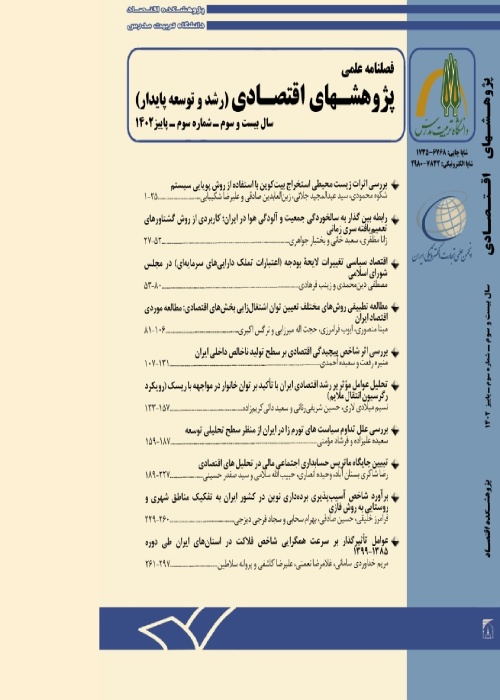An Analysis of the Relationship between Economic Growth, Energy Consumption, and Ecological Footprint in Some Selected Developed and Developing Countries
The purpose of this paper is to analyze the relationship between economic growth, energy consumption and ecological footprint in 27 developing countries and 27 developed countries during the period 1990-2018.
This paper analyzes the relationship between economic growth, energy consumption, and ecological footprint in 27 selected developing countries and 27 selected developed countries over a period of 1990-2018. The present model was developed according to as Akadiri et al. (2019) and Mohammad et al. (2019), which are in the form of the following three equations: (3)The EFP is an ecological footprint index that compares the rateof resource consumption and production of human waste with the rate of resource reproduction and waste disposal by the biosphere, being defined in terms of the amount of land needed to maintain this cycle. EG is described as the economic growth. NREC is the consumption of non-renewable energy and includes energy from combustible non-renewable energy, such as oil, gas, hydrocarbons, coal, and nuclear energy. REC is the consumption of renewable energy. FD is financial development. URB is the growth rate of urbanization. TO is the degree of trade openness. L is the labor force. K is an investment. HC is human capital. FR is the fertility rate. MR is the mortality rate. PI is political instability. TEC is the technology. KOFE is the globalization of the economy. In order to analyze the relationship between the mentioned variables, the Generalized Method of Moments (Sys-GMM) was used.
The results showed that in both groups of developed and developing countries, economic growth was correlated with energy consumption and ecological footprint index. Nonrenewable energy consumption, urbanization rate, fertility rate and mortality rate in both groups of the country had positive effects and the renewable energy, technological growth rate and human capital had negative effects on ecological footprint. Economic growth had a negative effect on the ecological footprint of developed countries and a positive effect on the ecological footprint of developing countries, which indicates that more developed countries rely on the use of renewable energy. Ecological footprint has a negative effect and economic growth, urbanization rate and financial development had positive effects on energy consumption in both groups of countries. Ecological footprint has had a negative effect on the economic growth of developed countries and a positive effect on the economic growth of developing countries. Renewable and non-renewable energy, financial development, degree of trade openness, physical capital, labor and economic globalization had positive effects and political instability and mortality rates had negative effects on economic growth in both groups.
Based on the results of the research, it is suggested that countries, especially developing countries, try to create and use clean energy. High information, proper education, exchange of information with other countries to benefit from the information and advanced goods that are in line with the environment, taxation of producers who use polluting energy and granting tax exemptions and low-interest and long-term loans to producers who use clean energy will reduce the ecological footprint. Given the impact of non-renewable and renewable energy on growth and economic development, the contradiction of the impact of economic growth on the ecological footprint in developed and developing countries indicates that developed countries have adopted an approach based on which renewable energy is used rather than non-renewable energy in the production process. While the use of non-renewable energy sources in developing countries, although leading to economic growth, has led to environmental degradation. Since increasing economic growth is one of the most important economic goals of countries, it is necessary for policymakers to take measures in terms of economic growth, which imposes the least damage to the environment and achieves the goals of sustainable development. In this regard, it is recommended that the developing countries, as well as the developed countries, use renewable and less polluting energy such as solar, wind, and hydropower instead of non-renewable energy.
- حق عضویت دریافتی صرف حمایت از نشریات عضو و نگهداری، تکمیل و توسعه مگیران میشود.
- پرداخت حق اشتراک و دانلود مقالات اجازه بازنشر آن در سایر رسانههای چاپی و دیجیتال را به کاربر نمیدهد.




